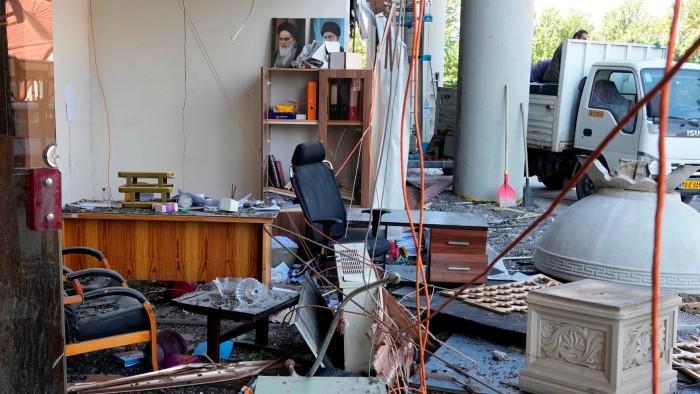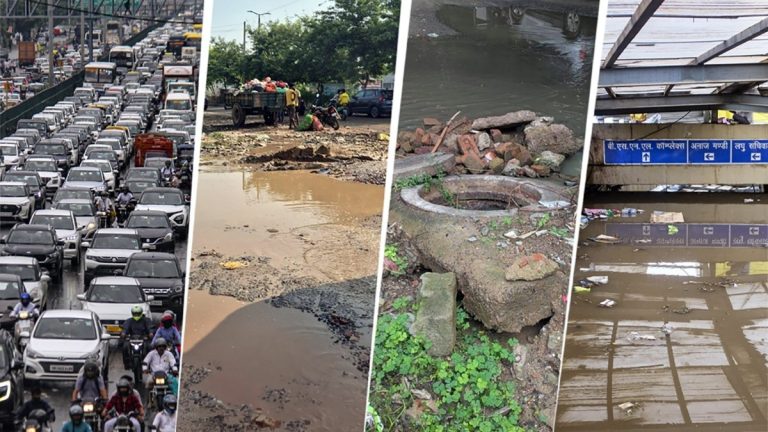Unlock the Editor’s Digest for free
Roula Khalaf, Editor of the FT, selects her favourite stories in this weekly newsletter.
Risk advisory groups have seen a “sharp increase” in inquiries as companies in the Gulf region ready contingency plans and activate crisis teams in preparation for any potential spillover of the Israel-Iran war.
Gulf monarchies, home to the region’s foremost financial centres such as Dubai and Abu Dhabi, have been at pains to keep their countries out of the fray after working to improve relations with Tehran in recent years. There is no immediate change to the security situation in the wider region, which includes Saudi Arabia and the United Arab Emirates.
But Gulf states host US military bases, which could become targets, and there are concerns that Iran could lash out by attacking their energy infrastructure if the situation escalates. President Donald Trump has said that the US could join Israel’s offensive by striking Iran.
“[We have] seen a sharp increase in requests relating to the escalating regional conflict,” said Tom Griffin, senior partner for the Middle East and Africa at Control Risks. “[These] range from evacuation support in Iraq and Israel through to intelligence and information around on-ground atmospherics”.
“There are a range of targets in the Middle East, whether it’s energy, utilities or US bases, that if this situation were to go up that escalatory ladder, put them potentially in play,” said Phil Miles, associate managing director for enterprise security risk management at adviser Kroll. “Businesses need to be thinking that this isn’t just a local conflict.”

The immediate danger is still in Iran and Israel amid waves of bombings in both countries in which civilians have been killed and injured. Kroll, Control Risks and International SOS told the Financial Times that they had assisted companies in evacuating staff from Israel since it launched its bombing campaign in Iran last week.
International SOS has also assisted with overland evacuations from Iran. Renault has told its 70 employees in Tehran to work from home, and said it was “closely monitoring the situation”.
Staff at International SOS’s assistance centres in Dubai and London “have been working nonstop since last Friday supporting clients,” said Gulnaz Ukassova, a Dubai-based security expert at the company.
Mick Sharp, senior vice-president of Crisis 24, which also owns the OnSolve security monitoring app, said that it has been an intensely busy period. The firm, which has 150 intelligence analysts on the ground in Israel has assisted on 40 individual company evacuations from Israel so far: “Jordan and Egypt are the primary first stops,” he said, “and we are using Doha and Sharm el-Sheikh as routes for onward travel”.
For many businesses in the Gulf region, instability is nothing new. Multinationals in Doha, for example, had to navigate the country being under embargo by its neighbours for three years during Trump’s first term.
But since Israel attacked the Islamic republic last week, more companies have asked for help with everything from crisis management plans to monitoring the unfolding war.
Some are turning to technology to reassure employees and keep them informed. A FTSE 100 consumer goods company with employees across the region has decided to install an emergency notifications system on staff mobile phones. It has also asked managers to develop business continuity plans so they can keep shipping goods if the situation escalates further.
Controls Risks’ Griffin said the group was “engaged in crisis management planning and table-top exercises for a number of companies”. Some businesses had activated “crisis teams” to keep management and employees informed, while others were checking for potential vulnerabilities in their supply chains.
Nick Doyle, a managing director at Kroll, said a “minority” of companies had already drawn up plans following attacks on Abu Dhabi by Yemeni Houthi rebels in 2022. While Kroll had helped clients develop evacuation plans for the UAE, “none have invoked those plans”, Doyle said. “They’re a last resort”.
One sector bracing for disruption is trade and logistics, with concerns that Iran might seek to close the Strait of Hormuz. One-third of the world’s seaborne crude transits through the narrow waterway controlled by Iran and Oman, as do the gas exports of Qatar and the UAE. The UK’s Maritime Trade Operations office has reported high levels of electronic interference across the Gulf region, which is disrupting vessels’ position reporting systems.
DP World, which runs the region’s largest shipping hub at the port of Jebel Ali in Dubai, said in a statement that its operations were at present running normally. It added that “in the unlikely event of a closure of the Strait of Hormuz, we are working closely with government authorities to ensure business continuity and are prepared with rerouting and alternative logistics strategies”.
Some companies are going so far as to consider what their messaging should be in the event of a serious escalation: at least one PR company in the region has had inquiries from clients about what they should say in the event of an attack on a Gulf financial centre.
As the conflict unfolds, some of the Gulf’s foreign workers are concerned but phlegmatic. “People are worried in Doha,” deadpanned Akber Khan, an expatriate investment manager in the Qatari capital. “Bar du Port opened six weeks ago and it’s still almost impossible to get a reservation. This is ridiculous”.







